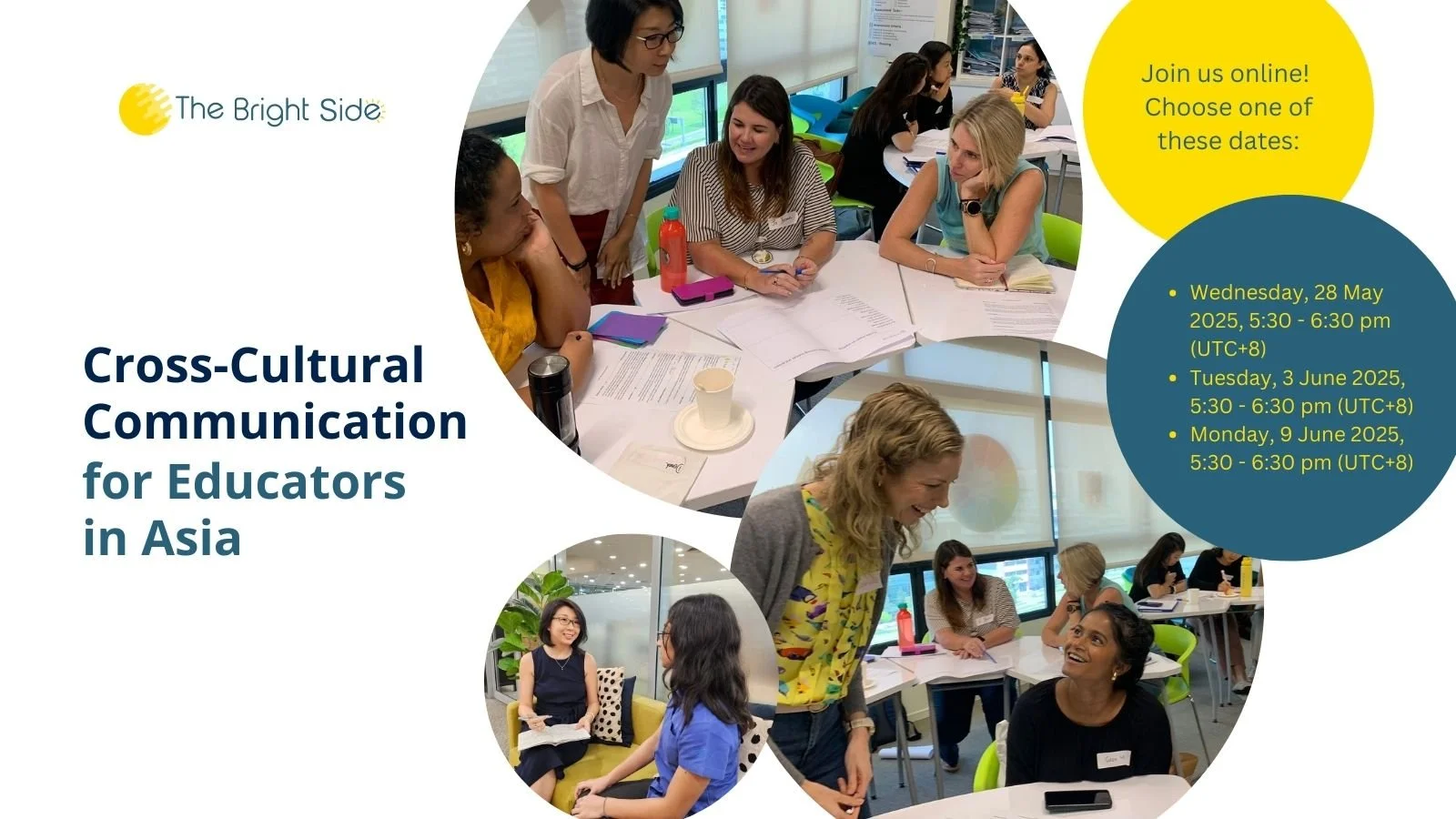Does Yes Mean Yes in Our Cultures?
“Why does my Thai teaching assistant say yes when she means no?”
“How can I communicate better with my Singaporean colleagues? We seem to have not quite reached a high level of trust."
“The North American teachers who I work with have such a strange way of giving feedback that I feel embarrassed about their rudeness.”
What culture we come from impacts how we communicate in so many different ways. For example, consider the British teacher who feels their Thai teaching assistant (TA) is not being clear about her yes and no. Thai culture is very high context, which means that communication requires listeners to read between the lines. Read this dialogue to see what we mean:
Teacher: We have a lot to do to set up our classroom for international night on Thursday. We will need to work after school on Wednesday.
Teaching Assistant: Yes, there is a lot to do and it will be a lot of work to get ready.
Teacher: I can stay late on Wednesday. Would you also be able to stay late and work with me?
Teaching Assistant: [smiling] Yes, I’ll do my best. This Wednesday will be busy. It is a special day for me.
Teacher: Oh yes, why is that?
Teaching Assistant: It is my sister’s birthday.
Teacher: I’m sure you will have a nice celebration. Please pass along my best wishes.
Teaching Assistant: Thank you for your understanding.
What do you think? Will the TA stay late on Wednesday? Most likely she will not and she feels she has explained why in this conversation. The teacher is expected to hear beyond the words that are said and realise that there are bigger priorities for the TA’s time. Smiling and saying “yes” are ways that many Asians, especially Thais, show their politeness. They do not necessarily mean a firm yes. This is called high context communication. Asian cultures are mostly very high context in their communication style, whereas many Western cultures are low context.
Cross-cultural communication has many aspects besides high/low context communication. Also crucial in schools are the continuums of trust building, giving/receiving feedback, and generations of ages.
Read more about cross-cultural communication in these articles:
We are hosting three online webinars about cross-cultural communication in Asian international schools on 28 May, 3 June, and 9 June 2025. Please join us! Sign up via Ed Events.

